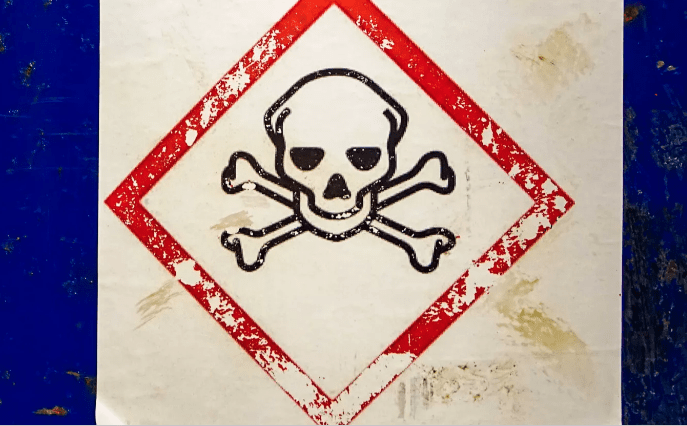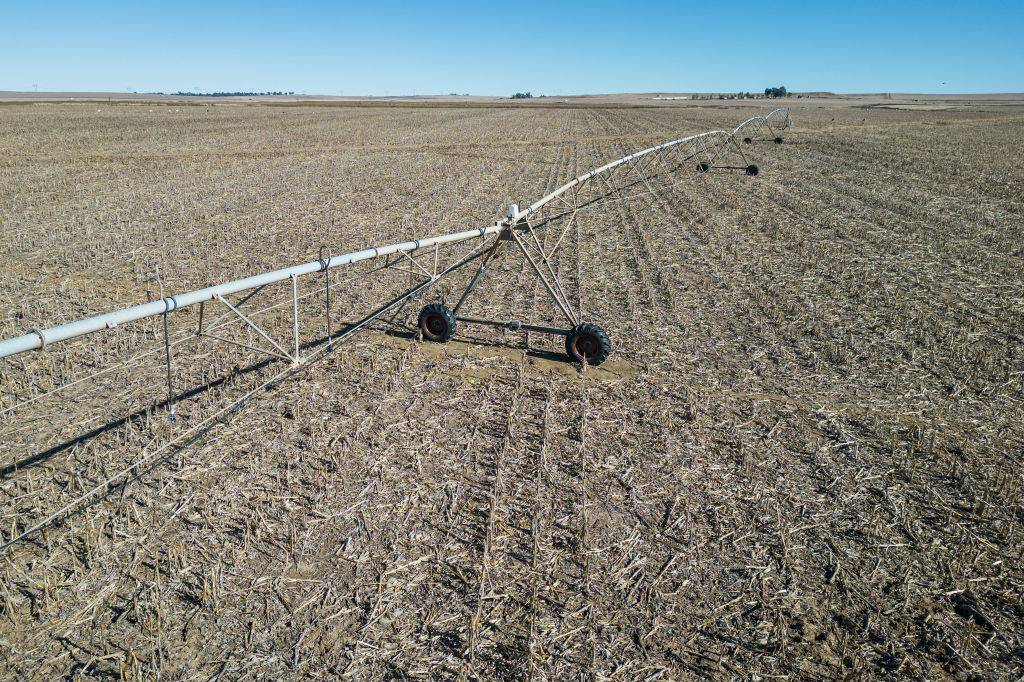(File photo)
Heads must roll for the regulatory failure that caused the “utterly unacceptable” deaths of six Soweto children who ingested the highly toxic agrochemical Terbufos, a coalition of civil society organisations and unions have said.
The potent organophosphate is outlawed in the EU, but legally registered for agricultural use in South Africa, according to the coalition, which includes the African Centre for Biodiversity, groundWork, Friends of the Earth SA, Women on Farms Project and the Commercial Stevedoring, Agricultural and Allied Workers Union.
It said the children’s deaths illustrated that its use is “clearly inadequately regulated”.
Monica Sebetwana, aged 6 years, Ida Maama, 7; Isago Mabote, 8; Njabulo Msimanga, 7; Katlego Olifant, 7 and Karabo Rampou, 9, of Naledi in Soweto, died last month after ingesting Terbufos.
The Naledi tragedy is not an isolated incident, the coalition said.
“It exposes the daily reality of many families who live in informal or unserviced conditions that are driven to use highly toxic solutions for pests. It also shines a light on farm workers and their families, who are continually exposed to toxic chemicals in their daily work and dwellings.”
Terbufos is an agricultural insecticide with neurotoxic effects, which is commonly sold as a “street pesticide” in South Africa. The World Health Organisation has classified it as a class 1a compound, the most toxic category for any pesticide.
The coalition members said they had campaigned for years, calling for the banning of highly hazardous pesticides, including Terbufos, and for stricter regulation and proper enforcement, “to no avail”. Not even a “damning report”, released in July by Marcos Orellana, the UN special rapporteur on toxics and human rights, “evoked a decisive response” from the government regarding the regulation of hazardous substances.
Orellana’s report said regulatory gaps and enforcement shortcomings had led to the emergence of street pesticides, which are widely available in markets, and used in informal settlements to combat rat and other pest infestations, aggravated by the absence of good sanitation services.
“Street pesticides are either legally registered for agricultural use but decanted into unlabelled containers and used illegally for domestic pest control or they are unregistered products, probably imported illegally.”
Many children had been poisoned or died after eating, drinking or handling hazardous street pesticides.
In 2022, there were 34 poisoning cases, including five deaths in Gauteng from an organophosphate, “probably Terbufos”, the report said.
“Local experts and medical professionals also flagged … that pesticide poisoning cases in South Africa were grossly underreported.”
Research at a large Cape Town mortuary published last year showed that Terbufos was the cause of more than half of child deaths in a 10-year review of fatalities in which pesticide poisoning was suspected.
“Terbufos and methamidophos are highly hazardous pesticide active ingredients registered in South Africa for agricultural uses, yet commonly sold as street pesticides for domestic use in lower socioeconomic areas,” the study said.
It said reducing availability of toxic pesticides, especially the illegal selling of street pesticides, and providing less-toxic alternatives to poorer communities, would reduce deaths.
Orellana also raised concern about the “corporate capture” of South Africa’s regulatory system, including pesticide registration processes, and the role of scientists in this.
Orellana’s findings should have been an international embarrassment for the government, said Haidee Swanby, coordinator of South Africa People’s Tribunal on Agrotoxins. Instead, its response to his report was “defensive and callous”.
She said there was no recognition of the suffering caused by regulatory negligence and the “cosy relationship with industry” nor any sign of a will to address the serious harms caused by agrotoxins under their watch.
No one should have access to Terbufos, Swanby added.
“First, it should have been banned already anyway and, second, if you’ve decided not to ban it, you should really be keeping your eye on it. But that’s not happening. It’s the most toxic poison there is and it should only be available to registered people [and] it should be highly regulated.”
She said, initially, the chemical industry body CropLife put the spotlight on foreigners and spaza shop owners by claiming a banned substance, smuggled over the border, was responsible for the children’s deaths but toxicology tests confirmed they were caused by Terbufos.
CropLife did not respond to the Mail & Guardian’s inquiries.
Terbufos has been banned in the EU since 2009 but continues to be manufactured and exported from Europe. To export chemicals that are known to have carcinogenic potential to developing countries is deplorable, said Colette Solomon, the director of the Women on Farms project.
“The deaths of these children illustrate the deadly consequences of maintaining this racist double standard in the pesticides trade,” she said.
Government ministers need to be held to account for “a system that allowed Terbufos to be used in South Africa under the conditions it was used”, said Leslie London, a pesticide expert at the University of Cape Town’s School of Public Health.
The Rotterdam Convention, to which South Africa is a signatory, “would have at the very least required some notification, but the minister responsible [former forestry, fisheries and environment minister Barbara Creecy] withdrew the regulations”. Last month, Dion George, the new environment minister, issued updated regulations.
Similarly, London said, the department of health holds the obligation to enforce the Hazardous Substances Act, “yet there is complete inaction”.
“Whoever sold the Terbufos should have a register that the department of health is able to inspect. It’s convenient to blame the vendor, but government departments, including health, agriculture, labour and environmental affairs, are complicit in this failure to protect public health.”
The department of forestry, fisheries and the environment referred the M&G to the department of agriculture, saying: “That department is the authority responsible for regulating pesticides, and every time we receive prior informed consent notification, we consult with them to ensure we do not allow substances that are not registered in the country.” The agriculture department did not respond to requests for comment.
Orellana said in his report he was pleased to learn that the department of agriculture, land reform and rural development was to ban the sale and use of certain highly hazardous pesticides from 1 June 2024.
“Nonetheless, all hazardous pesticides that have been banned in their countries of origin should also be banned in South Africa.
“Enforcement of the legislation that governs pesticides in South Africa falls under several departments, leading to coordination issues.”
The primary legislation, the Fertilisers, Farm Seeds, Seeds and Remedies Act No. 36 of 1947, fell under the responsibility of the department of agriculture, land reform and rural development. Orellana said it was outdated and widely perceived to be inadequate.
In its response to Orellana’s findings, the state said the various spheres of government cooperate to prevent and manage health effects linked to pesticide exposure.
“In line with the international commitment, South Africa is working towards the phasing out of highly hazardous pesticides, where the risks have not been managed and where safer and affordable alternatives are available, and to promote transition to and make available those alternatives by 2035.”
It acknowledged the Act was old.
South Africa was reviewing the legislative framework that governed pesticides to address gaps and to improve safety measures for human health and the environment, the state said. It would improve transparency, public participation and access to information.
The coalition’s demands include government accountability and cohesion; charting a route out of toxic agricultural practices; inclusive, transparent decision-making and an end to double standards.
London said urgent action is needed to correct the “gaping hole” in regulatory oversight and improve enforcement, as well as to address government’s “deference to industry” at the expense of the health and lives of children, farm workers, small farmers and environmental integrity.
“We don’t have proper whole-of-government approaches. The regulation of pesticides is left to a department that has no expertise in health or environmental protection. We continue to register and allow chemicals banned in other jurisdictions.”
He said the pesticide registration system was antiquated: “There is no transparency, no notification to the public of pesticides that are being registered. There is no system to indicate what the public can scrutinise in the dossier. There is no plan for re-evaluating existing chemicals in light of new science.”
There are no mandatory levers to ensure industry takes responsibility despite it being a principle in the National Environmental Management Act (Nema).
“Nor [is there] any mechanism to ensure polluter pays, nor a risk-averse approach adopted to registration,” said London. “All of these (and more) are principles in Nema that cannot be upheld by a 75-year-old piece of legislation. It is not fit for purpose.”
Enforcement relies on the police to prosecute someone using a pesticide in contravention of the law.
“Given how overburdened SAPS [South African Police Service] is by serious crime, and that it is not coping with the most basic of policing functions, it is not surprising enforcement practically is non-existent.”
London had never heard of anyone — other than a professional pest-
control operators — being charged for, let alone convicted of, a crime under the 1947 Act. “It’s a model of enforcement doomed to failure.”




















Discussion about this post